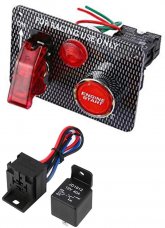linuxrunner
New Member
- Joined
- Jan 16, 2021
- Messages
- 2
I have a camper with 4 50ah LiFePo4 batteries. I am thinking of changing to a 24v setup from 12v. I have a few high draw items that pull 2000w that we use occasionally. my worry is that I have a 12v appliance that pulls only about .8 amps but runs pretty much non stop.
I understand that a dc to dc converter would be less efficient but I am not sure how much I am going to lose.
Anybody else run into this? We kind of want more wattage capacity and voltage drop is starting to be a real problem which 24v will fix. On the other hand 90% of our usage is that very slow 1amp draw.
I understand that a dc to dc converter would be less efficient but I am not sure how much I am going to lose.
Anybody else run into this? We kind of want more wattage capacity and voltage drop is starting to be a real problem which 24v will fix. On the other hand 90% of our usage is that very slow 1amp draw.



